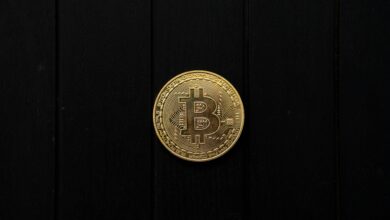On Thursday, October 24, Ripple Labs made a significant move in its ongoing legal dispute with the US Securities and Exchange Commission (SEC) by filing the Civil Appeal Pre-Argument Statement, known as Form C. This crucial document outlines the key issues Ripple intends to bring forward in its appeal. Each issue will undergo a de novo standard of review, allowing the appellate court to examine the issues afresh without any deference to the previous court’s decisions.
Ripple’s Core Arguments in the Appeal
The appeal centers on four primary arguments presented by Ripple Labs.
Challenging the Definition of an Investment Contract
Ripple’s first argument questions the definition of an “investment contract” under Section 5 of the Securities Act of 1933. The company asserts that an investment contract must include essential elements, such as a contractual agreement that imposes post-sale obligations on the seller and grants the buyer rights to demand and receive profits from the seller’s activities.
Disputing the Application of the Howey Test
The second argument disputes the district court’s application of the Howey Test, a legal standard derived from the 1946 Supreme Court case SEC v. W.J. Howey Co. Ripple contends that the court erred in determining that some XRP transfers constituted investment contracts. The company challenges the conclusions regarding the presence of an investment of money, a common enterprise, and a reasonable expectation of profits solely from Ripple’s efforts.
Reasserting the Fair Notice Defense
In its third argument, Ripple revives the “fair notice” defense, claiming it lacked adequate warning that its actions violated Section 5. The company highlights evidence of widespread uncertainty regarding the application of federal securities laws to virtual currencies and digital assets. Ripple blames the SEC’s inconsistent and deliberately vague statements for contributing to this confusion.
Challenging the Specificity of the Injunction
The final argument addresses the injunction issued against Ripple, asserting that it does not meet the clarity requirements of Rule 65 of the Federal Rules of Civil Procedure. Ripple argues that the injunction, which merely instructs the company to “obey the law,” is too broad and leaves room for interpretation, potentially hindering its business operations.
Insights from Legal Experts
Pro-XRP attorney Jeremy Hogan shared his perspective on the appeal through X, emphasizing the broader implications for the crypto industry. Hogan noted that Ripple’s challenge to the definition of an investment contract could have significant consequences, stating, “Ripple is bringing this issue to the appeals court mainly for the benefit of the crypto space in general.” He added that while winning on this issue might not absolve Ripple of the $105 million judgment against it, it could “cripple the SEC enforcement regime” by requiring a legal contract for an investment contract.
Hogan also highlighted the importance of the fair notice defense and the challenge to the injunction’s specificity. He remarked, “Most interesting to me, Ripple appeals whether the injunction is specific enough when it basically says, ‘follow the law.’ This seems quite common in securities laws cases but really makes no sense as an injunction. It also indicates that Ripple would rather not have that injunction hanging over its business.”
Ripple’s Stance and Future Outlook
Ripple’s Chief Legal Officer, Stuart Alderoty, provided further insights into the company’s position via X. He clarified that the case does not revolve around whether XRP itself is a security, stating, “XRP is uniquely situated as having clarity (alongside BTC) in not being classified as a security. The SEC is not challenging that ruling, which stands as the law of the land.”
Alderoty reassured stakeholders that the appellate court will review the existing record without allowing the SEC to introduce new evidence or demand additional documents. He emphasized, “As we go through this process, please remember the SEC’s broader strategy: try to create distraction and confusion for Ripple and the industry. But honestly, it’s just background noise now. The hard part of the fight is behind us. Ripple’s business is growing and getting stronger every day even as this appeal process plays out.”
Looking Ahead
In a parallel development, the SEC has requested that the deadline for filing its principal brief be set for January 15, 2025. Additionally, pro-XRP attorney John E. Deaton has filed for an appearance as amicus counsel in the Second Circuit rendition. He stated, “Senate race or not, I don’t walk away from what I started.”
At the time of writing, XRP is trading at $0.5255, maintaining its position above the 200-week EMA.







